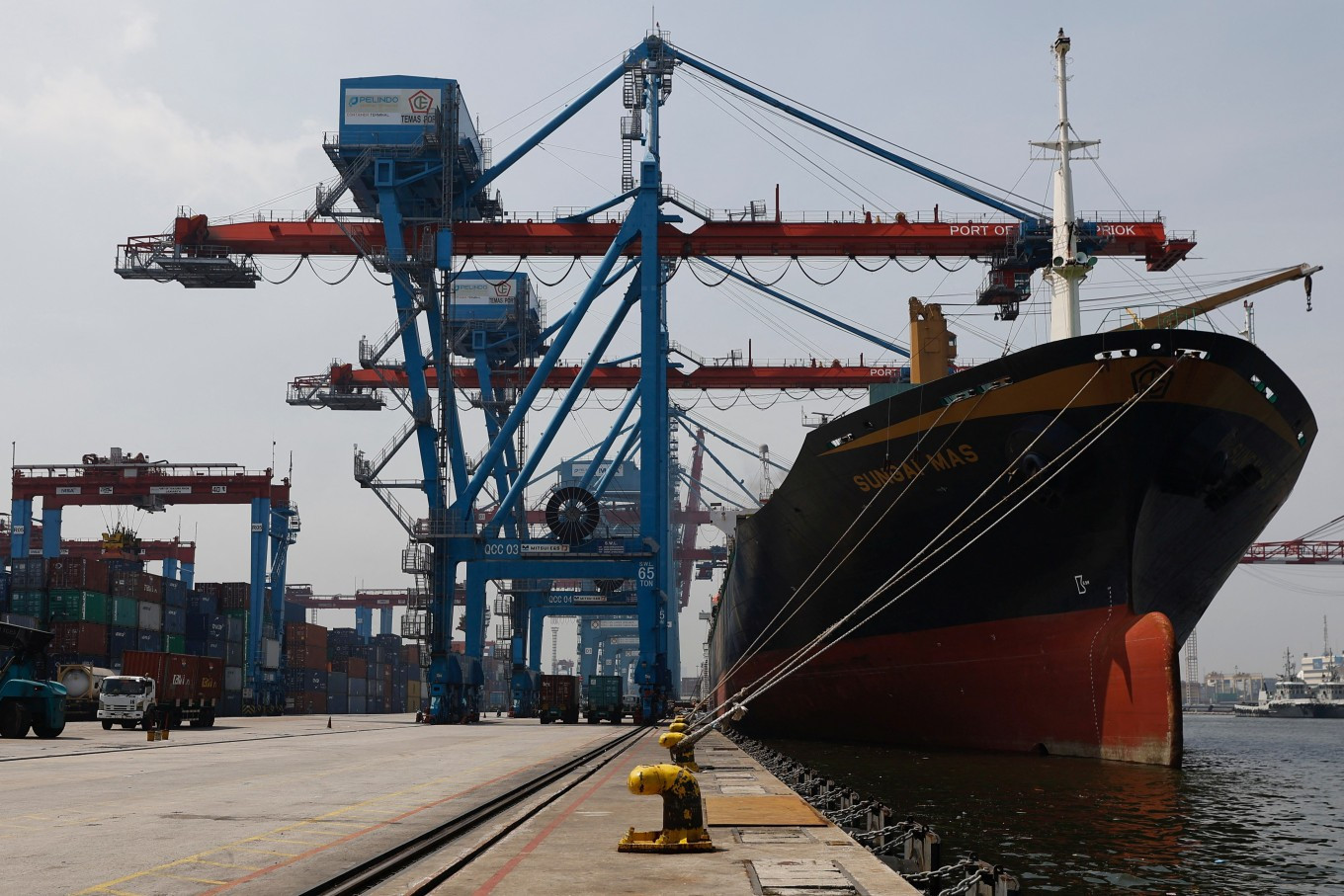News
Rethinking Indonesia's DHE policy amid rupiah pressures
Tenggara Strategics November 27, 2025 A container terminal is pictured on Feb. 12 at Tanjung Priok Port, North Jakarta. (Reuters/Willy Kurniawan)
A container terminal is pictured on Feb. 12 at Tanjung Priok Port, North Jakarta. (Reuters/Willy Kurniawan)
The contribution of natural resource export receipt (DHE) to Indonesia's foreign reserves remains limited, intensifying calls to revise Government Regulation (PP) No. 8/2025 on DHE. While the policy temporarily keeps export proceeds onshore, much of the forex (forex) ultimately flows back overseas to service external debt. As a result, the regulation has fallen short of its stated goal of strengthening reserves, an issue that has become more urgent as the rupiah faces renewed depreciation pressures.
Furthermore, exporters have continued to voice their increasing frustration with the DHE lock-up, especially after the lock-up period was extended earlier this year from a minimum of 3 months to 12 months for non-oil and gas DHE. Despite mounting complaints, the government has been reluctant to significantly loosen the rules, arguing that a major relaxation could prompt exporters to quickly shift funds offshore once constraints are lifted.
However, the government's re-examination of PP No. 8/2025 unexpectedly revealed a potential loophole that has allowed certain exporters to move funds out of the special accounts where DHE are intended to remain locked. Finance Minister Purbaya has acknowledged the issue and stated that the regulation will be reviewed, but he has also cautioned businesses to keep their expectations reasonable, noting that any revisions will likely focus on narrow technical adjustments rather than a broad policy overhaul.
Bank Indonesia (BI) has added that the compliance rate for the DHE lock-up exceeds 95 percent. This implies that the loophole, while problematic, is technically permissible under the existing legal framework.
The rupiah's continued depreciation has added a new layer of urgency to these concerns. The currency slipped to Rp 16.760 per United States dollar on Nov. 18, its weakest level so far this month, intensifying scrutiny over policies that might be limiting forex liquidity in the domestic market, such as the DHE lock-up.
Compounding to these challenges, BI has been unable to lower the BI Rate, holding it at 4.75 percent in November due to persistent inflation and heightened global uncertainty. With room for monetary easing is constrained, BI has fewer tools available to stabilize the rupiah, making it even more important that existing forex regulations do not unintentionally dampen market liquidity.
This brings renewed attention to one of the key weaknesses of the DHE lock-up mechanism: the very limited range of activities for which the funds can be used. Under Article 11A of PP No. 8/2025, exporters may deploy locked-up proceeds for only a handful of purposes, one of the most common being the repayment of foreign debt. In practice, this means that the forex kept onshore ends up flowing back overseas relatively quickly—reducing any meaningful accumulation of forex reserves and undermining the policy's initial intent.
Moreover, for the funds to contribute to the domestic foreign-exchange market in a more direct way, exporters would need to convert the DHE into rupiah. However, this burdens businesses since their operational expenses, revenues, and financial obligations are predominantly denominated in foreign currency. This structural reluctance limits the policy's impact on rupiah liquidity, reinforcing the argument that a more flexible and economically aligned revision of PP No. 8/2025 is becoming increasingly necessary.
A potential path forward, compromising between exporter demands for greater flexibility and policymakers' insistence on keeping export proceeds onshore, is to slightly expand the allowable uses of locked-up DHE funds rather than dismantling the lock-up altogether. One commonly raised proposal is to allow exporters to use a portion of their locked-up funds to purchase foreign currency-denominated government securities (SBN) issued in the domestic market. For exporters, this allows an interest-bearing option that keeps their holdings in foreign currency while simultaneously channeling forex into the national reserves.
What we've heard
Banking industry sources say that closed-door discussions on revising PP 8/2025 have been underway since last month, including a meeting at President Prabowo Subianto's residence in Kertanegara. These talks have continued because exporters, particularly non-oil and gas exporters, are finding it increasingly difficult to operate under the current 12-month DHE lock-up requirement.

